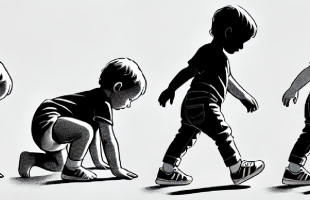
Growth Comes from Being Comfortable Being Uncomfortable: Embracing Human Skills for Personal and Professional Development
BCBU – what is it? No, it’s not Namibia’s “Bush Control and Biomass Utilisation”! It’s Being Comfortable Being Uncomfortable. Lately we’ve been having multiple conversations about how real growth, personally and professionally, comes from Being Comfortable Being Uncomfortable. We don’t know if we’re the only ones using this acronym, but all our clients sure know it.
When there’s a challenge we will often just say BCBU!
We note that in ever-evolving landscape of business and personal development, one mantra stands out: growth comes from being comfortable being uncomfortable. This concept, while seemingly paradoxical, is a powerful driver of innovation, resilience, and success. Growth Mindset you say? Or just Standard Operating?
The Value of Discomfort in Growth
Discomfort often signals that we are stepping out of our comfort zones and into new, uncharted territories. It is in these moments of uncertainty and challenge that we learn the most about ourselves and our capabilities. Discomfort forces us to adapt, innovate, and overcome obstacles, leading to personal and professional growth. How would we walk today if we didn’t fall over 100 times?
Key Human Skills for Embracing Discomfort
Here’s some thoughts on the human skills that will help us be comfortable being uncomfortable.
- Adaptability: The ability to adjust to new conditions is crucial in a world where change is constant.
- Resilience: Resilience is the capacity to recover quickly from difficulties. It involves maintaining a positive attitude and continuing to move forward despite setbacks.
- Emotional Intelligence: Understanding and managing one’s emotions, as well as empathising with others, is vital in navigating discomfort.
- Curiosity: A curious mindset drives individuals to explore new ideas and seek out new experiences.
- Self-awareness: Being aware of one’s strengths and weaknesses enables individuals to approach discomfort with a strategic mindset. Self-aware individuals can leverage their strengths while actively working on areas for improvement.
- Critical Thinking: The ability to analyse and evaluate information objectively is essential when facing uncertain situations.
The Role of a Coach in Navigating Discomfort
Coaches can play a pivotal role in helping individuals become comfortable with discomfort. As trusted advisors, coaches provide guidance, support, and constructive feedback, enabling individuals to push their boundaries and achieve their goals. Through effective coaching, individuals can develop the skills needed to navigate uncertainty and thrive in challenging environments.
Assessments for Personal Development
The use of psychometric assessments, such as personality profiles be valuable tools in understanding how individuals respond to discomfort. These assessments provide insights into an individual’s personality traits, and potential areas for growth. Our preferred personality profile is Facet5.
Conclusion
Embracing discomfort is not just about enduring challenges; it’s about transforming them into stepping stones for growth. By developing key human skills such as adaptability, resilience, emotional intelligence, curiosity, self-awareness, and critical thinking, individuals can turn discomfort into a powerful catalyst for personal and professional development. With the support of coaches and the insights provided by psychometric assessments, anyone can learn to be comfortable being uncomfortable and unlock their full potential.
Get in touch to learn more.
Contact Us